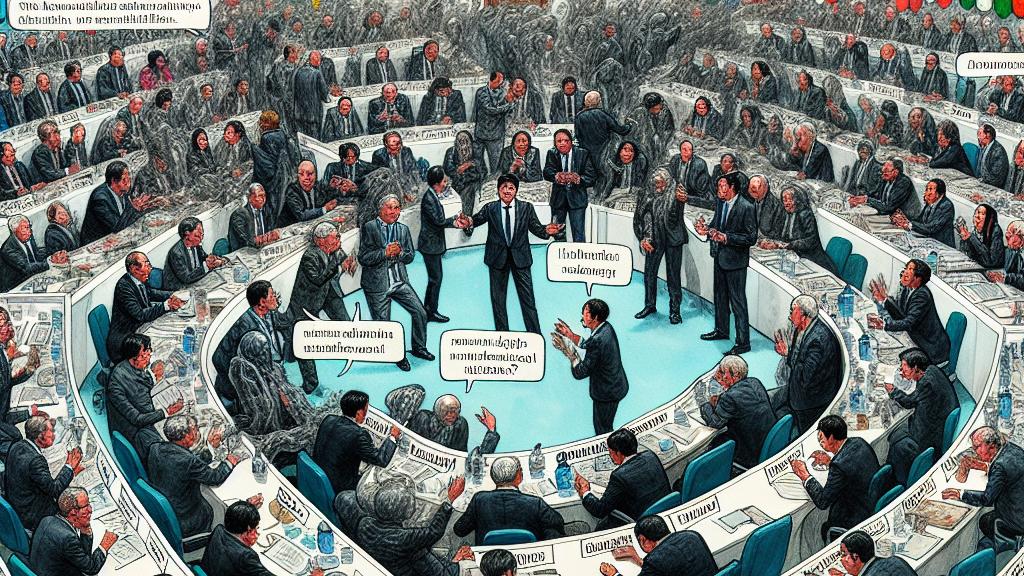Progress on Global Plastic Treaty Amid Deadline Pressure
Overview
- Critical negotiations for a global plastic treaty are taking place in Busan, South Korea.
- Countries are racing against the impending Dec. 1 deadline to finalize an agreement.
- Key topics of discussion include production limits, financial aids, and promoting a circular economy.

The Urgency of the Moment
In the bustling city of Busan, South Korea, delegates from approximately 175 nations have gathered to engage in pivotal negotiations that could reshape global efforts against plastic pollution. As the clock ticks down to the December 1 deadline, there's an unmistakable air of urgency—every single moment is critical! Frustration has bubbled up among many delegates as they find themselves revisiting familiar topics without much progress. To navigate these challenging waters, INC Chair Luis Vayas Valdivieso has taken proactive steps. He’s spearheading informal meetings that aim to tackle the toughest issues head-on. These discussions not only cover the contentious topic of caps on plastic production but also explore innovative financial strategies designed to support countries in need.
Navigating Complex Challenges and Diverging Interests
However, the path to an agreement is fraught with obstacles. On one side, you have petrochemical-producing giants, like Saudi Arabia, staunchly opposing any move to impose production limits. This resistance creates a stark contrast to the sentiments of nations most affected by plastic waste, particularly low- and middle-income countries that bear the brunt of the crisis. Picture this: those grappling with overflowing landfills and polluted waterways are passionately advocating for stricter regulations, while powerful industrial nations seek to protect their economic interests. This emotional tug-of-war underscores the intricate dance of diplomacy that must take place—a delicate balancing act where opposing parties must come together to forge a treaty that can genuinely address the diverse needs and circumstances of the global community.
Towards a Circular Economy: Building a Sustainable Future
At the very heart of this treaty lies a groundbreaking vision: the adoption of a life-cycle approach that champions a circular economy. Let’s be clear—recycling alone won’t save us! If we aspire to make significant strides in battling the plastic crisis, a radical rethinking of plastic production, usage, and disposal is imperative. Imagine a future where companies innovate products designed for easy recycling or, better yet, biodegradation after their useful life. Such transformations could significantly reduce the ever-growing plastic footprint on our planet! Picture this: successful implementation of the treaty could create an extraordinary ripple effect, encouraging sustainable production practices, fostering environmental responsibility, and ultimately enhancing public health. All of this hinges on collaborative international efforts and robust financial backing. With the right strategies in place, this treaty has the potential not only to mitigate plastic pollution but also to unlock new opportunities for economic growth and ecological restoration.

Loading...